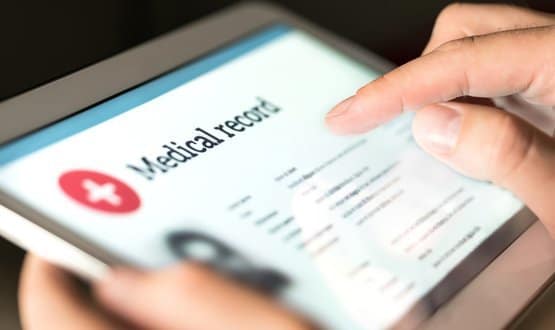PHRs struggling to gain traction and show benefits – review

Attempts to create a personal health records suffer from a “lack of quantifiable benefits” and some schemes face an uncertain future if new funding is not found.
A wide ranging review of PHRs, carried out by the Royal College of Physicians’ Health Informatics Unit and funded by NHS England, found that attempts to put more health information in the hands of patients remain at a “relatively low level of maturity.”
It also found that while organisations that had set up PHR projects claimed they had led to meaningful improvements – from fewer hospitalisations to cost savings – these were mostly “assumptions or anecdotal.”
“Many of the case study sites had invested in PHRs on the basis that they are ‘a good thing’, but with little evidence of quantified benefits,” a report released this week says. “The lack of a viable business case could slow further developments and make existing PHRs unsustainable.”
Professor Jeremy Wyatt, who leads the Health Informatics Unit, said there was a clear desire from the public to get more involved in managing their health; but not yet the capacity for providers to deliver.
“Personal health records are a tool that can facilitate this, but at present are only available to restricted groups of patients,” he said. “The evidence shows that more work is required to develop and improve the user experience.”
The report defines personal health records as “a digital tool that helps people to maintain their health and manage their care”; most often by enabling them to access their health record, carry out transactional services, and communicate with medical staff.
Rolling out PHRs across the country is part of the National Information Board’s ‘Personalised Health and Care 2020’ framework to drive improved use of digital technology in healthcare; and some large acute and mental health trusts have invested in developing them.
University Hospital Southampton NHS Foundation Trust has been running My Health Record on Microsoft’s HealthVault platform since 2012. Other prominent projects have been set up by South London and Maudsley NHS Foundation Trust and University Hospitals Birmingham NHS Foundation Trust.
The researchers extended the scope of their review to include condition specific records, such as PatientView (formerly known as Renal PatientView), and the GP access to records project. On this basis, they noted that most PHR projects are relatively small scale.
Their report studies six PHRs in detail, which range from big projects, such as the myhealth@QEHB in Birmingham, which is used by 10,000 patients with long-term illnesses, to a multimedia advocacy PHR service being offered to 160 families with special needs children in Nottinghamshire.
The report concludes that PHRs tend to be limited in scope, providing a narrow window into a specific set of records, not enabling patients to add to them, and offering only limited transactional services.
Instead, the researchers concluded that PHRs were largely used as an alert or email-like service, giving patients access to blood tests, providing a portal to arrange appointments, or as a database of medical information.
Online consultations were offered in about a third of PHRs, although another third were developing this function, while booking appointments was offered in about half.
Some PHRs included online patient forums, but these were difficult to moderate. PatientView, which is offered to more than 50,000 chronic kidney disease patients, ended up scrapping its forums completely “after patients were inadvertently identifying themselves and instances of sharing poor advice were identified.”
On average it takes about three years – from conception to roll-out – to set-up a PHR in the UK; although recruiting users is an ongoing task for most providers. It also appears that even when patients sign-up few become regular users.
“For example, although approximately 1,000 people are signed up for myhealthlocker [the PHR used at South London and Maudsley] there are only around 200 uses of the PHR per month,” the report says.
Against this background, the report recommends that further study to quantify exactly what benefits arise from introducing a PHR, how they can used to improve care and self-care, and how, if at all, different groups of patients would benefit from access to a PHR.
However, Tim Kelsey, NHS England’s former director of patients and information, said in an accompanying statement that the review provided enough evidence to show that PHRs were worth pursuing.
“The review provides key evidence on which the NHS can begin to build a case for investing in these technologies and innovations for the future,” he said.




